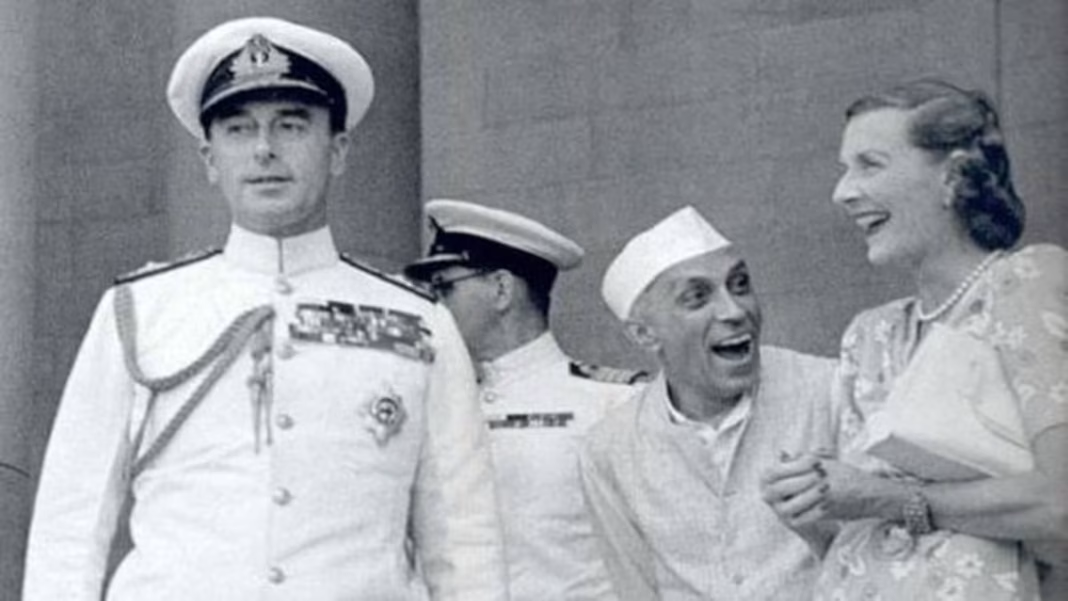Ah, the illustrious tale of Jawaharlal Nehru, Edwina Mountbatten and her remarkably understanding husband, Lord Louis Mountbatten. What could be more riveting than a post-colonial soap opera set against the backdrop of India’s independence? This love triangle wasn’t just scandalous. It was also suspiciously influential. Because, naturally, nothing spells out good governance quite like being distracted by a torrid love affair.
Nehru Edwina: The Star-Crossed Lovers?
Picture it: 1947. India is teetering on the brink of freedom, and in waltzes Lord Mountbatten with his glamorous wife Edwina. Enter Nehru, fresh out of prison and seemingly more interested in Edwina’s company than in stabilizing a nascent nation. The chemistry between Nehru and Edwina is palpable—letters filled with poetic musings and political gossip fly back and forth. Meanwhile, Lord Mountbatten, epitome of modernity, seems either blissfully ignorant or in on the fun, ensuring the triangle remained tantalizingly intact.
Love Letters or Policy Briefs?
The love letters between Nehru and Edwina weren’t just sappy notes exchanged by infatuated teens; they were detailed missives that discussed everything from their feelings to the future of India. Perhaps Nehru believed Edwina’s affection would help him craft better policies. Spoiler alert: it didn’t. One might imagine Lord Mountbatten reading these letters, chuckling to himself, knowing that his wife’s romantic escapades were at least making someone happy amidst the chaos of partition.
The Political Fallout
While Nehru was busy penning odes to Edwina and perhaps receiving “advice” from Lord Mountbatten, India’s policies seemed to suffer. The Nehruvian era is marked by a series of, shall we say, questionable decisions. From the botched handling of the Kashmir issue to the poorly executed economic policies, one wonders if Nehru was more focused on his love life than on running a country. After all, it’s hard to build a nation when you’re distracted by romantic intrigues and the complicated dynamics of a ménage à trois.
Mountbatten’s Role
Lord Mountbatten’s own influence on Nehru is another curious aspect of this story. Was he a puppet master pulling the strings from behind the scenes, using his wife’s allure as a diplomatic tool? Or was he simply too distracted by his own affairs to notice the downward spiral of Nehru’s governance? Either way, his presence in this triangle didn’t exactly contribute to stellar leadership.
The Grand Facade of Nehru
Publicly, Nehru was the image of a dedicated leader, Edwina was the compassionate socialite, and Mountbatten was the dignified Viceroy. Privately, however, the story was far juicier. One can only speculate on the pillow talk that may have influenced key decisions—did Edwina whisper sweet nothings or strategic tips into Nehru’s ear? Did Mountbatten share a knowing wink as Nehru fumbled through policy after policy?
The Enduring Impact
In retrospect, this romantic triangle did more than provide fodder for gossip. It arguably influenced the trajectory of a newly independent India. Nehru’s distracted leadership, swayed by the affections of Edwina and the peculiar friendship with Mountbatten, left a legacy of mixed outcomes. So, the next time you ponder the complexities of political leadership, remember the curious case of Nehru, Edwina, and Lord Mountbatten. It’s a poignant reminder that even the most “distinguished” leaders can be sidetracked, often to the detriment of the very nation they’re meant to lead.


